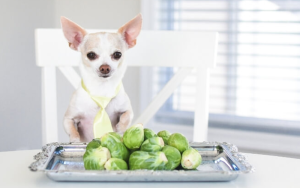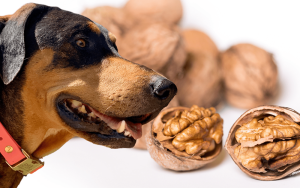Can Dogs Eat Pickles? The Ultimate Guide to Pet Health and Safety

As pet owners, we’re often faced with the dilemma of whether our furry companions can safely eat certain human foods. One common snack that raises a lot of questions is pickles. These tangy, salty treats are a favorite for many humans, but can dogs eat
pickles safely? In this article, we will explore the safety, nutritional value, and potential risks of feeding pickles to your dog. We’ll also provide alternative healthy snack options for your pet, ensuring that you can make informed decisions about
their diet.
Table of Contents:
- What Are Pickles Made Of?
- Can Dogs Eat Pickles?
- Nutritional Value of Pickles for Dogs
- Risks and Concerns of Feeding Pickles to Dogs
- Signs of Pickle Toxicity in Dogs
- Safe Ways to Feed Pickles to Dogs
- Healthier Alternatives to Pickles for Dogs
- Conclusion: Are Pickles Safe for Dogs?
1. What Are Pickles Made Of?
Pickles are cucumbers that have been preserved in a brine solution, vinegar, or a mixture of both. This process involves soaking cucumbers in salt and water or vinegar, which leads to the tangy and sour flavor that is characteristic of pickles. The ingredients
typically include:
- Cucumbers: The main vegetable in pickles.
- Salt: Commonly used in the pickling process.
- Vinegar: Adds the sour taste.
- Spices and Herbs: Such as dill, garlic, mustard seeds, and peppercorns, which enhance the flavor.
While these ingredients are generally safe for humans, dogs have different dietary needs, and certain ingredients that are harmless to us can pose risks to our pets.
2. Can Dogs Eat Pickles?
Yes, dogs can eat pickles in moderation. However, it’s essential to keep a few key considerations in mind before offering this human food to your furry friend. While cucumbers themselves are safe for dogs to eat, the pickling process introduces ingredients
like salt and vinegar that may not be suitable for pets.
Most dogs can enjoy a small piece of pickle now and then, but you should be cautious about how often you serve pickles and how much of them your dog consumes. Dogs have different digestive systems compared to humans, and their tolerance for certain foods
can vary.
3. Nutritional Value of Pickles for Dogs
Pickles contain several nutrients that might be beneficial to dogs in small amounts. Here’s a breakdown of the nutritional content in a typical pickle:
- Low in Calories: A single pickle usually contains just a few calories, making it a low-calorie treat.
- High in Water Content: Cucumbers, the main ingredient in pickles, are over 90% water, which can help keep your dog hydrated.
- Vitamins and Minerals: Pickles can provide some vitamins like vitamin K and minerals such as potassium. However, the amount of these nutrients is relatively small.
While these nutrients are beneficial, it’s essential to understand that the risks of pickles outweigh the benefits when consumed excessively. The salt and vinegar content can be problematic, and feeding pickles too often can lead to health issues like
dehydration or digestive upset.
4. Risks and Concerns of Feeding Pickles to Dogs
While an occasional pickle may not harm your dog, there are several risks associated with feeding pickles regularly or in large amounts. These include:
High Salt Content
Pickles are typically high in sodium due to the brine used in the pickling process. Excessive salt can cause serious health issues for dogs, including:
- Dehydration: Salt can cause your dog to become excessively thirsty and can lead to dehydration if they don’t drink enough water.
- Sodium Ion Poisoning: In extreme cases, consuming too much salt can lead to sodium ion poisoning, which can cause symptoms like vomiting, diarrhea, seizures, and even death.
Vinegar
Vinegar is often used in the pickling process, and while it is generally not harmful in small amounts, large quantities can upset a dog’s stomach and cause digestive problems. Additionally, the sourness of vinegar might irritate your dog’s mouth and throat.
Spices and Additives
Many store-bought pickles contain added spices such as garlic, onions, or mustard, which are toxic to dogs. Garlic and onions, in particular, are known to cause damage to a dog’s red blood cells and can lead to anemia. If you’re making homemade pickles
or giving your dog store-bought varieties, be sure that they do not contain harmful spices.
5. Signs of Pickle Toxicity in Dogs
If your dog eats too many pickles, they might experience the following symptoms of toxicity or digestive distress:
- Excessive Thirst or Urination: Due to high sodium intake.
- Vomiting or Diarrhea: Caused by the acidity of vinegar and other additives.
- Lethargy or Weakness: Symptoms of dehydration or an electrolyte imbalance.
- Abdominal Pain: Resulting from digestive upset.
- Tremors or Seizures: Severe cases of sodium poisoning can lead to neurological symptoms.
If you notice any of these symptoms after your dog consumes pickles, contact your veterinarian immediately.
6. Safe Ways to Feed Pickles to Dogs
If you choose to give your dog pickles, it’s crucial to do so safely. Follow these guidelines:
- Moderation is Key: Offer pickles as an occasional treat, not a regular part of your dog’s diet.
- Plain Pickles: Avoid pickles that contain spices like garlic, onions, or mustard. Opt for simple, unflavored pickles that are free from these harmful ingredients.
- Small Portions: Serve only small pieces of pickle, and avoid giving your dog an entire pickle at once.
- Monitor Your Dog: After giving your dog pickles, watch for any signs of digestive upset or discomfort. If any adverse reactions occur, discontinue feeding pickles and consult your veterinarian.
7. Healthier Alternatives to Pickles for Dogs
If you’re looking for a healthier snack for your dog, there are several great alternatives to pickles. These treats are not only safe but also beneficial for your pet’s health:
Carrot Sticks
Carrots are low in calories, high in fiber, and full of vitamins like vitamin A. They’re great for your dog’s teeth and digestion.
Cucumber Slices
If your dog likes the taste of pickles, you can offer fresh cucumber slices instead. Cucumbers are low in calories and water-rich, making them an excellent hydrating snack.
Apple Slices (Without Seeds)
Apples are a healthy and crunchy treat that many dogs enjoy. Just be sure to remove the seeds, as they contain cyanide, which is toxic to dogs.
Pumpkin
Pumpkin is rich in fiber and can help with your dog’s digestion. It’s also a good source of vitamins like A, C, and E.
Sweet Potatoes
Cooked sweet potatoes are a nutritious and fiber-packed snack for dogs. They are rich in vitamins and minerals that promote healthy digestion.
8. Conclusion: Are Pickles Safe for Dogs?
In conclusion, pickles are generally safe for dogs in small amounts, but they should not be a regular part of your dog’s diet due to their high salt and vinegar content. While the cucumbers in pickles are safe for dogs, the brine and added spices may
pose risks, especially in large quantities.
If you do decide to offer your dog a pickle as an occasional treat, make sure it is plain and free from harmful ingredients like garlic or onions. Always monitor your dog after feeding any new food and consult your veterinarian if you have concerns about
their diet.
Remember, when in doubt, always choose healthier alternatives like fresh vegetables or fruits that are known to be safe for dogs. Keeping your dog’s diet balanced with nutritious, pet-friendly snacks is the best way to ensure their long-term health and
happiness.
By following these guidelines, you can keep your dog safe while still indulging their occasional curiosity about human foods like pickles. It’s always better to err on the side of caution and consult your veterinarian before introducing any new treats
into your dog’s diet.
4o






